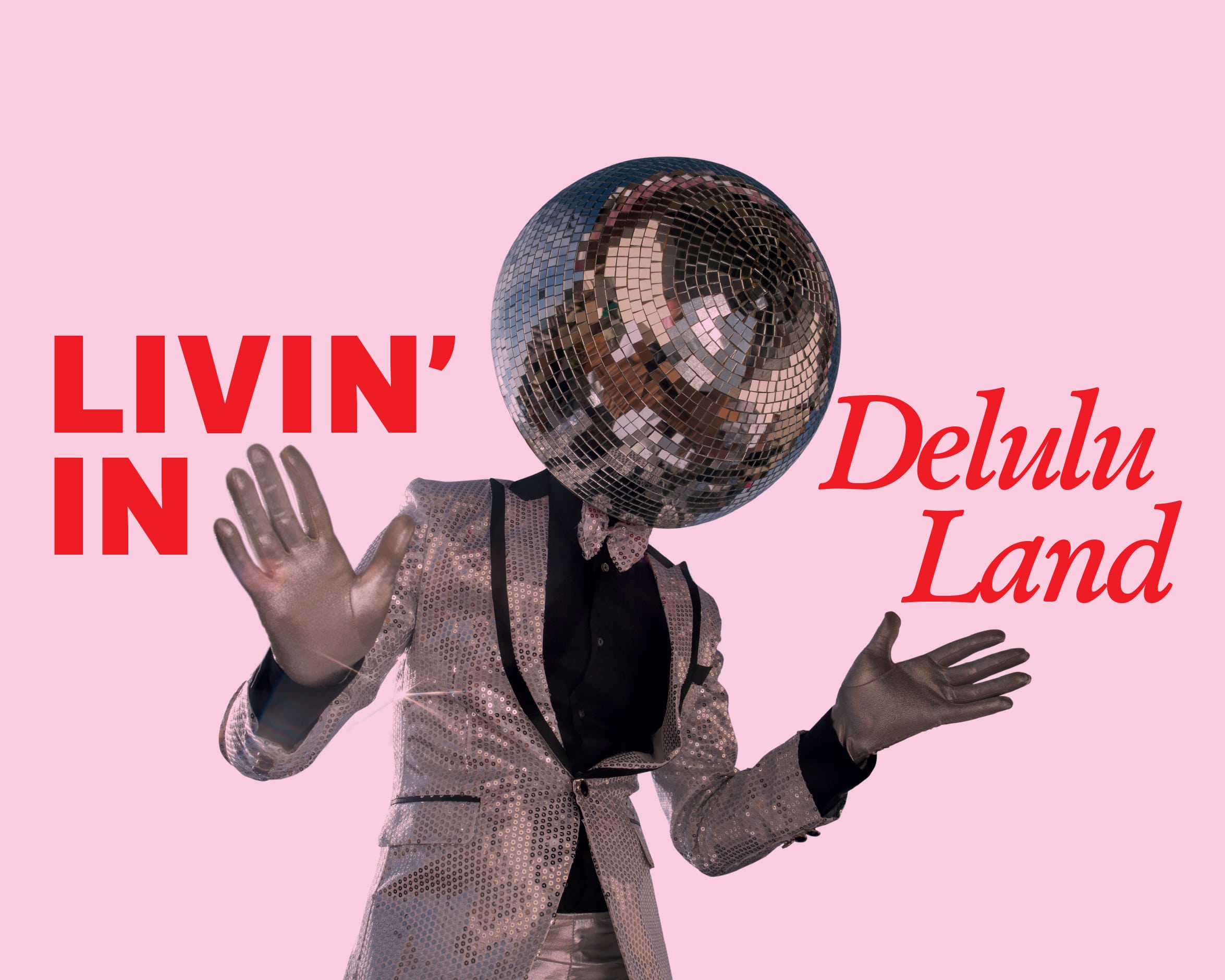Embark on a tour through a land where imagination/delusion knows no bounds.
Since 2022, the term ‘delulu’ has gained popularity on social media platforms like TikTok, and is now widely used as slang for ‘delusional’. There’s been an influx of posts made by #delulugirls who believe that “delulu is the solulu” and who encourage “delulu until it comes trululu”. Most people spamming For You pages with delulu posts are 18 to 24 years old. Looks like a lot of new born adults are in their delulu phase…
Origin story
Many view the Delulu Land trend with concern, and like every villain, it has an origin story. The term ‘delulu’ comes from K-pop fandom (since 2014) and was originally used to criticise the beliefs and theories fans had about K-pop artists. With the tidal wave of Korean culture in the last few years – music, series, food, beauty – it’s no surprise it’s gained popularity.
Down the rabbit hole
The delulu trend promotes believing that something is true even when all signs are pointing elsewhere. At first glance, the trend is light-hearted and initially revolved around romance. A Delulu Land inhabitant would interpret ghosting as a sign that their crush was falling hard for them and ghosted them out of fear of heartbreak. Or believe their beloved doesn’t post you on social media because you’re so hot that they’re afraid someone will steal you from them.
In essence, it comes down to painting a self-protective narrative for yourself that’s easier to digest than the harsh reality. The memes, while laughable, have become an unavoidable part of modern discourse. Social media users are even applying this concept of being to other aspects of life. For one, Gen Zs have used the notion of being delulu to make light of discouraging work environments.
For example, the expectation that being good at your job and working overtime will result in a big salary increase or promotion when, instead, you’ll just be given more responsibility for being efficient. It can also give one a confidence boost, like believing that you’re not getting a promotion because your manager is threatened by you. But we all know how toxic and counterproductive this type of thinking can be…

On the other hand, a lot of Gen Z professionals are behaving like the employees they aspire to be – whether that means acting as though they’re in a more senior job position, or envisioning that they have gotten a promotion that isn’t entirely in their control – or bank account. The idea is that Gen Zers are manifesting their ideal occupations and inviting raises and promotions by living out their aspirations and being ‘delulus’.
One could say that this is a type of positive thinking and optimism. Ever heard the saying, “I’ll see it when I believe it”? Gen Z is simply putting intention into their work and, with any chance, manifesting those thoughts into reality. This is a sign of good work performance and ambition, which some would argue is much better than the usual negative self-talk.
However, delusions related to work environments can cause individuals to remain in a cycle of exploitation or prevent them from pursuing opportunities elsewhere. Holding on to romantic delusions (‘delusionships’) can lead to obsession and stalking your crush, or ignoring red flags in a relationship. It’s good to have a positive attitude, but it’s important to manage expectations and acknowledge situations for what they are. The first step is leaving Delulu Land…
Is delulu taboo?
Some view ‘delulu’ as an able-ist slur, claiming it trivialises a serious mental-health issue. Delusional disorder (previously called paranoid disorder) is a type of mental illness or psychotic disorder where people have delusions due to misinterpreting situations or having false memories.
“Delusions are characterised by an unshakeable belief in things that are not true and, in many cases, there is a continued belief in the delusion despite evidence to the contrary,” says Amy Morin, a psychotherapist and author.
“Delusions are common symptoms of some psychotic disorders. They may occur along with hallucinations, which involve perceiving something that isn’t really there, like hearing voices or feeling bugs crawling on your skin,” she continues.
“It’s also important to recognise that not all delusions are the same. Some delusions might involve non-bizarre beliefs that could theoretically occur in real life, such as believing that your spouse is cheating on you. Other delusions are bizarre, fantastical or impossible, like thinking that you are responsible for the fate of the world…
Amy says it’s important for anyone experiencing delusional thinking to seek professional help. However, this can be challenging, since people experiencing delusions often don’t think of their beliefs as a problem.
Words by: Sahrah Enous
Photography: Gallo/Getty Images



